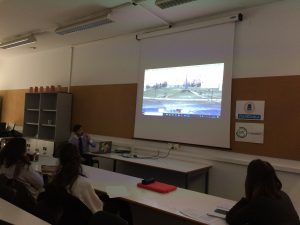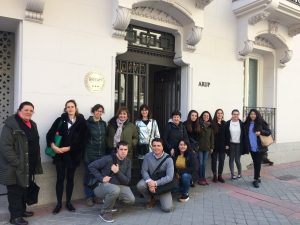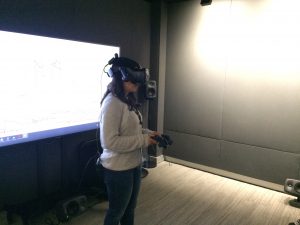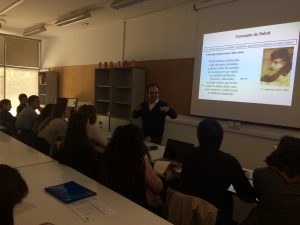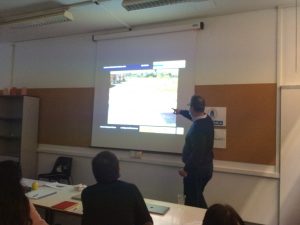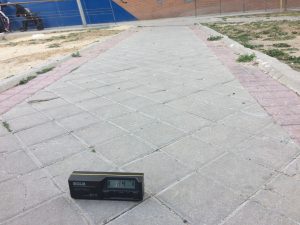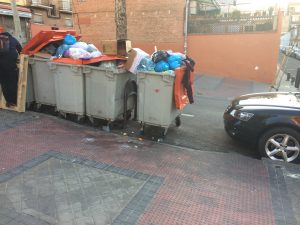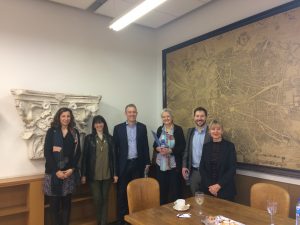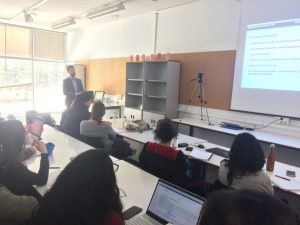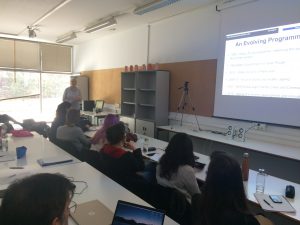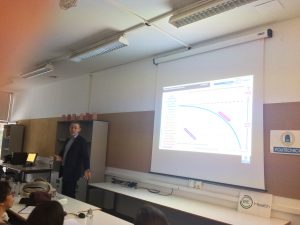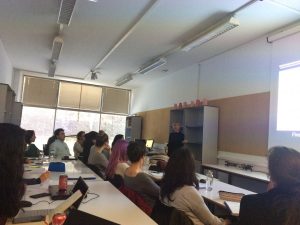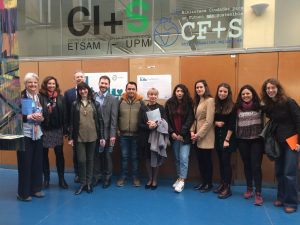Colaboradores, compañeros/as y participantes de UNI-Health,
Queremos compartir con todas las personas que nos estáis siguiendo y acompañando en este proyecto los avances más recientes!
Esta semana hemos cerrado con éxito la primera edición anual del proyecto UNI-Health con el evento del festival en Newcastle, una jornada de networking que se ha centrado en soluciones basadas en la naturaleza y la salud urbana. Los estudiantes del seminario celebrado en Octubre en Newcastle también compartieron y publicaron sus trabajos. Pronto publicaremos los resultados del evento en nuestras redes.
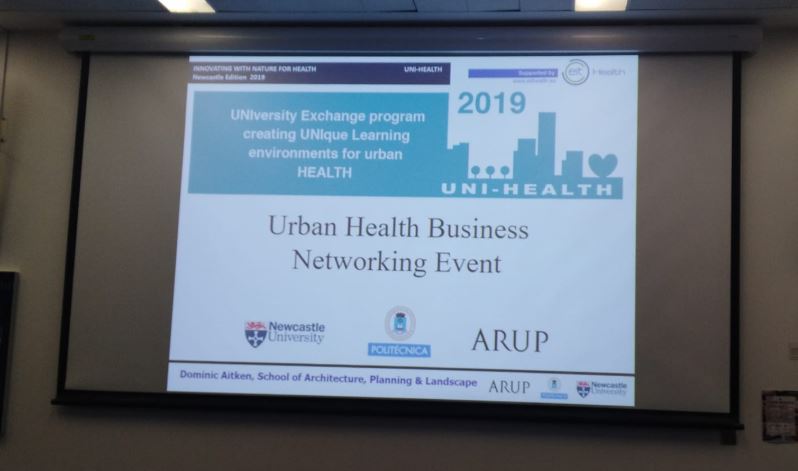
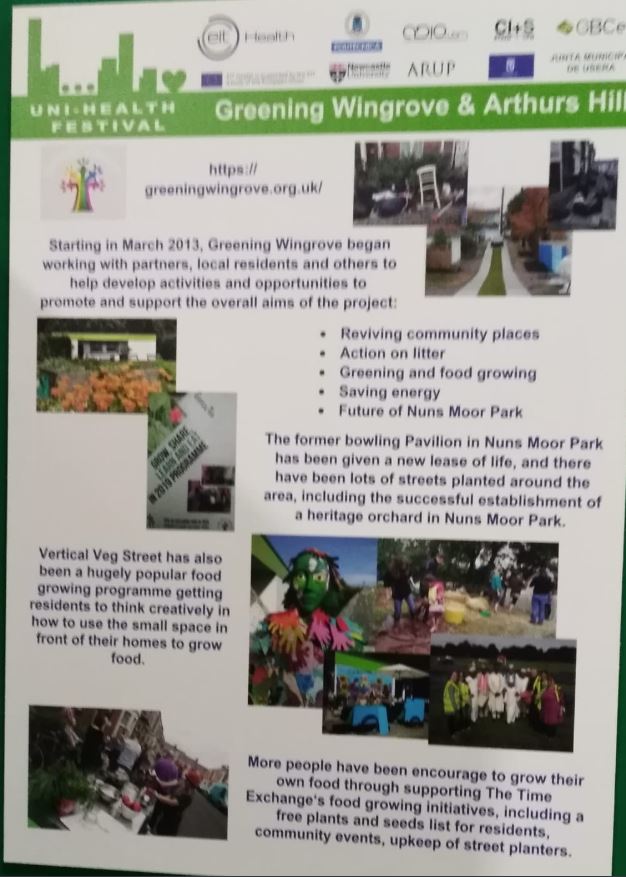
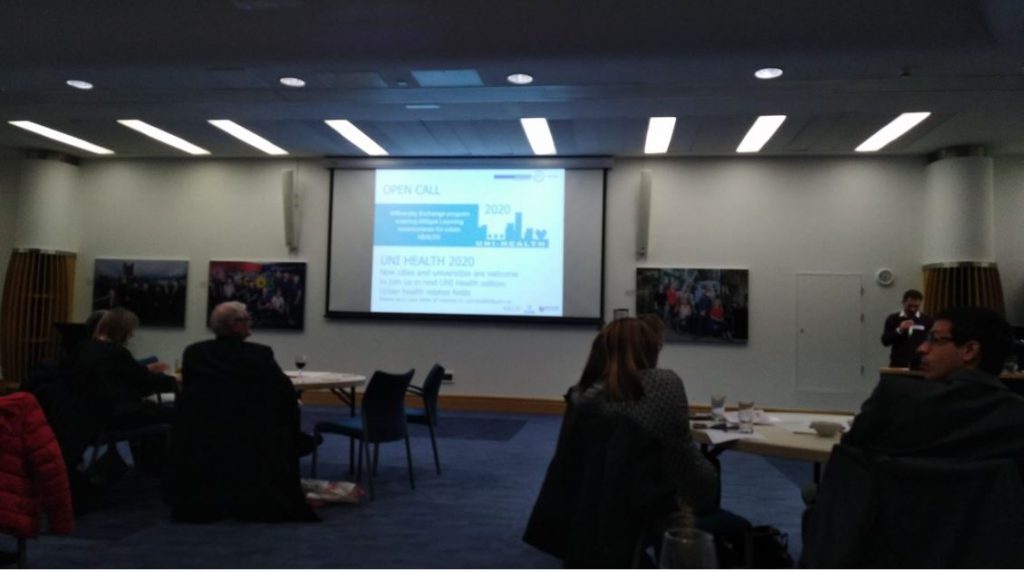
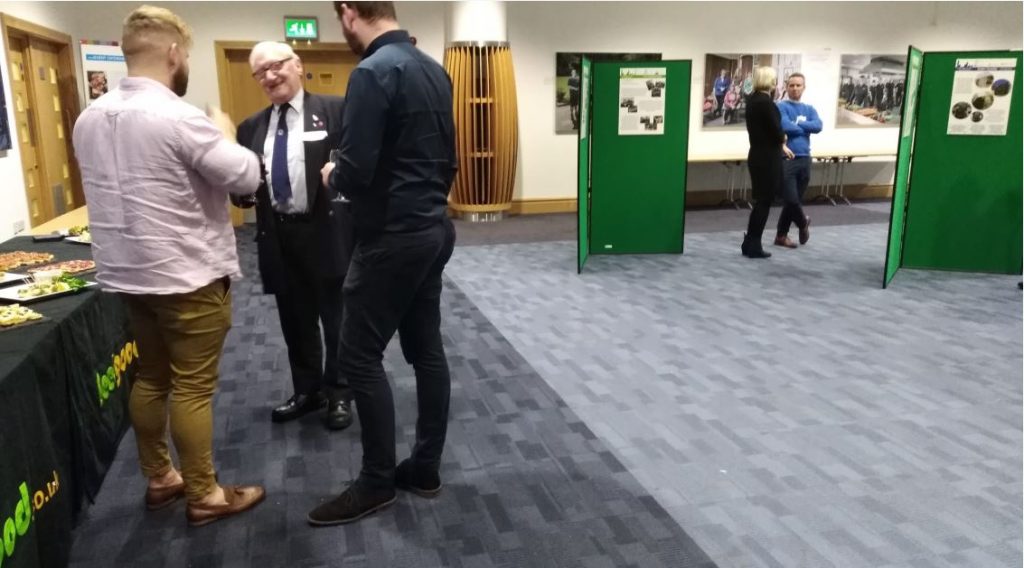
Por otra parte, en la Escuela de Arquitectura de Madrid (ETSAM) de la Universidad Politécnica de Madrid, tendremos el mes de diciembre dedicado al ODS Nº3 Salud y bienestar. Con ese motivo vamos a presentar los resultados del proyecto UNI-Heath, que hemos desarrollado varias investigadoras sobre “Salud y urbanismo: envejecimiento activo”. El proyecto UNI-Health ha estructurado una red de investigadores de varias disciplinas, de profesores de urbanismo, sociólogos, ambientalistas, psicólogos ambientales, médicos de medicina preventiva, epidemiólogos y arquitectos, bajo el objetivo de mejorar los espacios públicos de las ciudades desde el envejecimiento activo. El miércoles 04 de diciembre a las 11,30 en la sala de grados b de la ETSAM, se van a presentar los resultados del proyecto en el barrio madrileño de Usera, gracias a la actividad colaborativa entre los estudiantes de posgrado, los expertos, los servicios sociales de la Junta Municipal de Usera y la Mesa de Mayores de Usera.
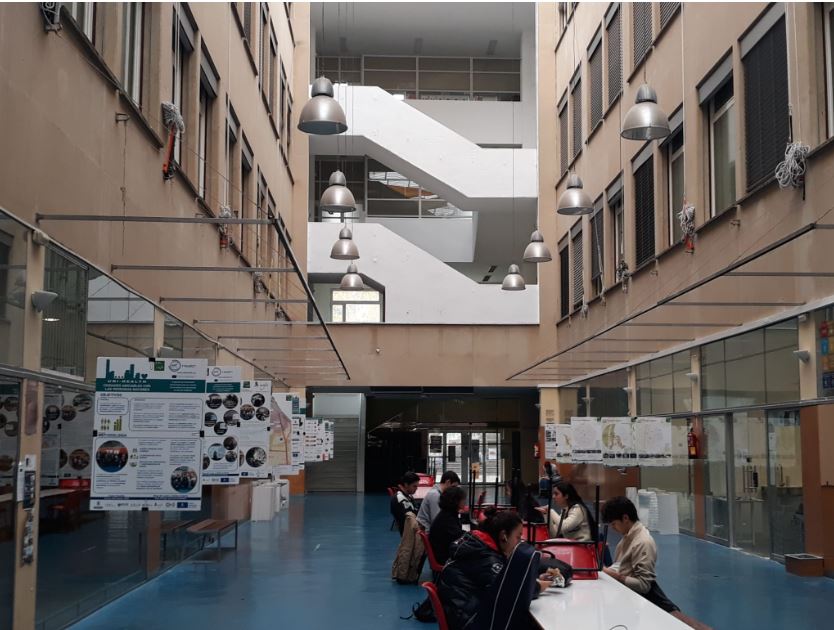
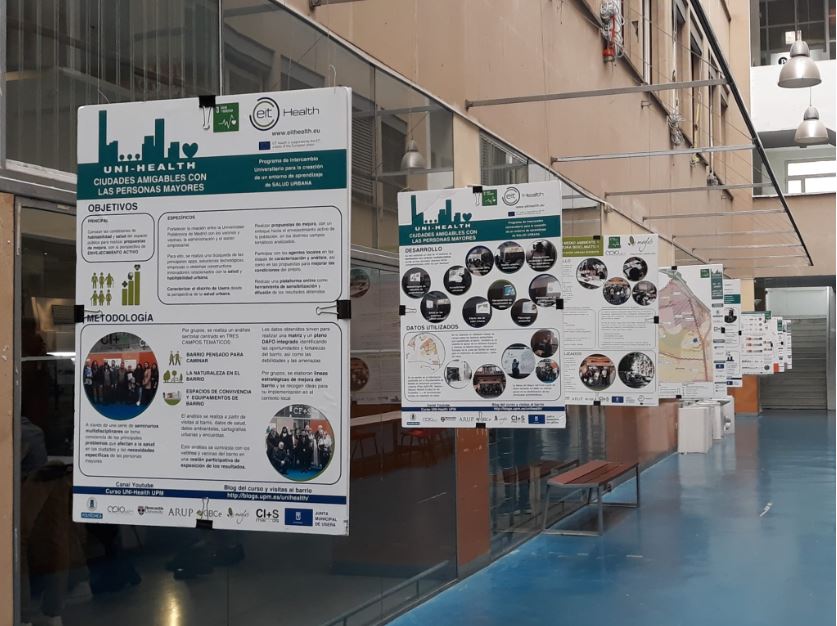
Los resultados se estructuran mediante la metodología de un Plan de Acción Local, con tres grandes líneas estratégicas: un barrio para caminar; más verde en el barrio de Usera, y nuevos espacios de convivencia intergeneracional. Estas lineas han sido presentadas como “Criterios de Diseño Urbano para barrios más saludables” en la Federación Española de Municipios y Provincias gracias al convenio de colaboración entre el Ministerio de Sanidad, la Universidad Politécnica de Madrid y la FEMP, bajo la dirección de José Fariña, Ester Higueras y Emilia Román.
La responsabilidad de transformar, adaptar y crear espacios más amigables con las personas mayores se abre como una linea de investigación preferente en numerosas disciplinas.
Nos gustaría contar con vosotros para ese momento, si estuvierais disponibles.
Además, en paralelo, parte del equipo estará la semana que viene en París durante los eventos EIT Health Summit y Matchmaking para publicar nuestra nueva convocatoria para el próximo proyecto EIT Health BP 2021. Estamos buscando colaboradores y socios para aumentar esta red y volver a reaplicar UNI-Health en otras ciudades y contextos urbanos y presentar nuevos proyectos para hacer frente a los retos de la salud en las ciudades del siglo XXI. En este próximo año 2020 nos gustaría fortalecer nuestra red con agentes interesados en salud urbana, datos de salud y soluciones basadas en la naturaleza.
ENLACES:
– Blogs del proyecto: https://blogs.upm.es/unihealth/ y https://www.voice-global.org/groups/uni-health/
– Vídeo resumen – Presentación proyecto: https://www.youtube.com/watch?v=6YTdQhAlmX8&feature=youtu.be
– Rutas UNI-Health: https://www.youtube.com/watch?v=JyAtEirtlr4&feature=youtu.be
– Story-Map: https://storymaps.arcgis.com/stories/0d6bb5cd20b841ebab9c7dc0b74dabe7
Esperamos coincidir con todas vosotras pronto!
Un abrazo,
Equipo del proyecto UNI-Health 2019
Ester Higueras, Emilia Román, Cristina Gallego y Elisa Pozo
Universidad Politécnica de Madrid
//
Dear partners, colleagues and participants of UNI-Health,
We are happy to share with all you the recent advances of the UNI-Health project.
We have successfully closed the first year edition with the networking festival at Newcastle to share innovative projects and ideas on nature-based solutions and urban health. Students have also shown their works of the Newcastle seminar edition celebrated on October. We will publish soon all the results on our sites.
On the other hand, in the School of Architecture (ETSAM) of Universidad Politécnica de Madrid, we will dedicate the whole month of December to the SDG Nº3 Good Health and Well-Being. UNI-Health project has created a networking of multidisciplinar researchers, urban professors, sociologists, environmentalists, psychologists, preventive care doctors, epidemiologists and architects. The main and common objective is to improve the public spaces in the cities from the perspective of active ageing. Next Wednesday 4th of December at 11:30h at “Sala Grados B” we will present the results of the project in Usera district in Madrid. This project has been developed thanks to the collaborative activity between post-degree students, experts, social services of District Council of Usera and Older People Council of Usera.
The results are structured following a Local Action Plan methodology, with three main strategic lines: a walkable neighborhood, greening Usera district and new spaces for conviviality and intergenerational meeting. These lines have been presented as “Urban Design Criteria for Healthier Neighborhoods” in the Spanish Federation of Municipalities and Provinces (FEMP) thanks to a collaboration between Health Ministery, FEMP and Universidad Politécnica de Madrid. This work has been directed by José Fariña, Ester Higueras and Emilia Román.
Responsability and compromise of transform, adapt and create friendlier spaces with older people is a shared research line that is getting attention as a key topic in different fields. We would like to invite you all to this presentation.
Additionally, next week we will be in Paris for the EIT Health Summit and Matchmaking Events to publish our open call for next EIT Health BP 2021. We are looking for new partners to increase this network, replicate UNI-Health in another cities and urban contexts and prepare new projects together. For this following year 2020 we would also welcome interested agents on health data and Nature-based solutions in order to reinforce the current network and try to support existing projects.
LINKS:
– Blogs of the project: https://blogs.upm.es/unihealth/ and https://www.voice-global.org/groups/uni-health/
– Videos of the first edition in Madrid: https://www.youtube.com/watch?v=6YTdQhAlmX8&feature=youtu.be
– UNI-Health Itinerary: https://www.youtube.com/watch?v=JyAtEirtlr4&feature=youtu.be
– Story-Map: https://storymaps.arcgis.com/stories/0d6bb5cd20b841ebab9c7dc0b74dabe7
Hope to meet you soon!
Best regards,
UNI-Health 2019 Madrid Project Team
Ester Higueras, Emilia Román, Cristina Gallego y Elisa Pozo
Universidad Politécnica de Madrid
